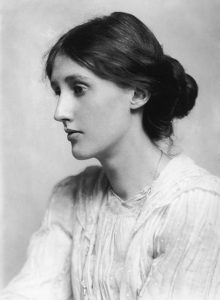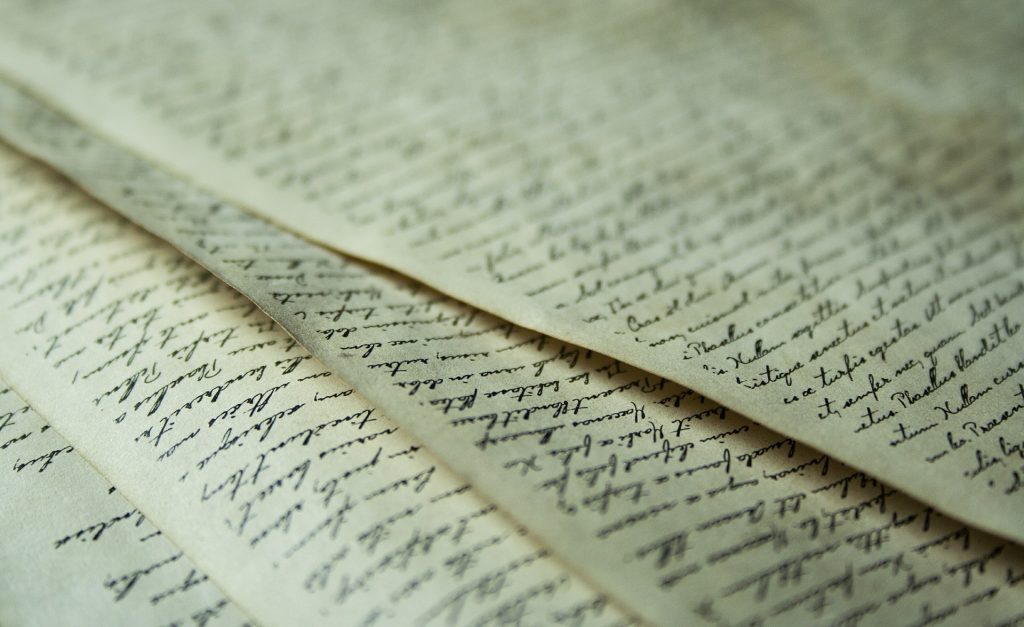Professor Marina Warner from the School of Arts explains how she decided on her list of influential women writers for BBC Radio 4 Today programme, ahead of the upcoming celebrations of the centenary of the women’s vote.
A text message arrived recently from the Today programme on BBC Radio 4, saying they were celebrating the 100 years since the vote was given women in 2018 and they wanted 100 names of influential women; would I come on and nominate writers?
Later, in a phone call, the brief was clarified: would I pick six British women writers, and plump for one favourite?
I struggled, I struggled, I made lists, long lists. Literature is such a vast field and women have excelled in it. Professions which require official qualifications often excluded women, but writing takes place in private. Indeed, the step into publication led the Brontes and George Eliot and Katherine Bradley and Edith Cooper (‘Michael Field’), to adopt male pseudonyms, while today, the use of initials still works to neutralise female names: P.D James, A.S Byatt, J.K Rowling.
For the rest of the week, the categories featured in the programme were the arts and architecture, politics, science, sport, and engineering. For historical reasons, the possibilities in those spheres of activity are far smaller than in literature and lots of living heroines were chosen, some very moot in my view.
Samira Shackle, who is the deputy editor of the New Humanist, was on the programme with me to choose journalists and the centenary also led me to think of women whose writing engaged with the world, who campaigned and argued and spoke out, often risking unpopularity and even obloquy.
I tossed and turn the night before I was due to go live on the programme, desperately trying to arrive at a shortlist. I came up with seven names – the bold names in this list are ones I mentioned in the programme, and the italics are the ones I would have liked to include.
 In the end, I placed Virginia Woolf (pictured, left) first – it felt impossible not to. She combines both activism and lyricism; her forthright attacks on inequality and on militarism made her the obvious first choice. But I tied Woolf (against the rules) with Angela Carter, because Angela Carter wove her social dreaming and ferocious critique into her fiction; she was also the most acute, acerbic observer and polemicist in her many essays. You may not agree with her about the Marquis de Sade but she makes you think, and nearly 40 years later, her arguments grapple with the issues so very alive now – desire, collusion, subjugation.
In the end, I placed Virginia Woolf (pictured, left) first – it felt impossible not to. She combines both activism and lyricism; her forthright attacks on inequality and on militarism made her the obvious first choice. But I tied Woolf (against the rules) with Angela Carter, because Angela Carter wove her social dreaming and ferocious critique into her fiction; she was also the most acute, acerbic observer and polemicist in her many essays. You may not agree with her about the Marquis de Sade but she makes you think, and nearly 40 years later, her arguments grapple with the issues so very alive now – desire, collusion, subjugation.
Samira and I didn’t get time to go through our full lists (before our slot, John Humphrys was interviewing Nigel Farage and ate into our time, as Mishal Hussein, our interviewer, noticed with growing anxiety).
Samira nominated Clare Hollingworth, the war correspondent as her number one, and Claudia Jones, the founder of the Notting Hill Carnival and of the first black British newspaper as one of her six.
I brought in Rebecca West, who took her nom de plume – her nom de guerre – from an Ibsen heroine who defies all social expectations, wrote uncompromising, diamond-sharp accounts of the Nuremberg trials and other criminal cases and was always outspoken and combative – incurring a lot of hostility at every stage of her long life.
Sarah Kane seemed to me a crucial figure in the history of women writers who are now writing so powerfully for the theatre, while Sylvia Plath spoke to my generation (Ariel came out when I was a student) in fiery tongues. Plath was, of course, American by birth and her case raised an issue we had no time to address: she lived and wrote in England, she profoundly shaped the voice of poetry in this country (possibly more than in her own).
Likewise, I wanted to include Elizabeth Bowen (Anglo-Irish). Then there are the writers who were born in the time of the British empire – is Jean Rhys Dominican, or can she be included in British writers? She is certainly a key figure in English Literature. What about Doris Lessing? Katherine Mansfield? Even Isak Dinesen (Karen Blixen) seems to be another key figure in English Literature; though she was Danish by birth and lived in Kenya, she wrote her greatest stories in English.
We had no time to attack this deeply difficult question. Literature has no borders and the peculiar status of English makes writing in English a wide horizon, leaping over the walls and fences of national Britishness.
The rest of my six are Muriel Spark, whose centenary it is this year: her imagination is streaked with off-kilter fantasy and weirdness, and I wanted very much to pay tribute to this magnificent tradition in our literature, to writers who dream up alternative worlds, working in genres that fall under Fantasy, Children’s Literature and Science Fiction.
I couldn’t bring in Ursula Le Guin as she is definitely American. Diana Wynne-Jones was on my early lists, but I decided to pay tribute to Lynne Reid-Banks, who is still alive, aged 88, because she combines both social realism and utopianism. The L-Shaped Room (1960) is a pioneering novel about a young, single woman thrown out by her family because she is having a baby. Restrained in tone, it is nevertheless a devastating picture of the conventions, prejudice, squalor, and callousness that pervaded this country not that long ago (and gives a clear warning); but Lynne Reid-Banks also wrote the series of fables, beginning with The Indian in the Cupboard.
Criticised by some for their depiction of Native Americans, the stories are terrific utopian adventures, exploring the power of imagination to nurture humanity and courage and they belong in the stream of lively inventive writing to which J.K Rowling and Philip Pullman belong.
There were so many colossuses I wanted to mention – Iris Murdoch, Stevie Smith. Not to speak of the living – who, out of a kind of tact, I did not want to introduce.
But there was one other genre I would have liked to recognise: graphic novels. In this area, Posy Simmonds reigns supreme: innovatory, trenchant, a brilliant storyteller and observer of the human comedy, gifted with an unrivaled ear for contemporary speech. She would make a splendid nominee, but I’ve run way over the limit of six.
On Tuesday 6 February in Westminster Hall in London, the nominations will be debated in front of a live audience and the overall winner chosen.
Please keep an eye on the website and see if you can take part – and support artists and writers as the key figures in women’s lives and opportunities over the last 100 years.
Let’s hear you!
You can listen to Professor Marina Warner feature on the BBC Radio 4 Today programme (from 2:20:40 onwards).


